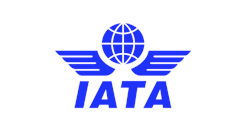Feb. 26—Delta Air Lines struck an agreement for consulting firm Deloitte to buy sustainable aviation fuel, part of an effort by the companies to reduce emissions and avoid government regulation.
Deloitte committed in September to reaching net-zero greenhouse gas emissions by 2030. Its plans include using renewable energy in buildings, converting vehicles to hybrid and electric power and reducing business travel. Its purchase of sustainable fuel for use by Delta will contribute to cleaner air overall and help Deloitte reach a goal of reducing carbon emissions for its business travel by 50%.
If major corporations like Deloitte significantly reduce business travel to meet sustainability goals, that poses a threat to future business for airlines like Delta.
The Delta deal with Deloitte is aimed at mitigating some of the impact.
"There's so much pressure from our customers for a solution," Delta CEO Ed Bastian said in remarks during a DealBook DC Policy Project event this week. "You hear the consultancies, the accounting firms, the financial services and technology companies that are saying, hey airlines, you're a big part of my footprint, so I'm having to reduce my travel to offset my footprint unless we can find a better answer together."
Delta said Deloitte is one of its first corporate customers to buy sustainable aviation fuel through Delta, a move aimed at reducing carbon dioxide emissions by about 1,000 metric tons.
Delta is partnering with renewable fuel maker Neste.
The airline said it will be able to offer sustainable air travel solutions to Deloitte and other corporate customers once it gets the new fuel made with animal fat, expected to be delivered this summer to San Francisco International Airport, which Neste has an agreement with. The fuel will be added to existing pipelines, so Delta plans to report emissions reductions associated with Deloitte's flights on the airline regardless of which flights the fuel is used on.
Bastian also said earlier this week that Delta is investing about $25 million in areas like reforestation, carbon sequestration and sustainable aviation fuels by the end of March to offset its flying in 2020 — less than originally expected amid a decline of travel due to COVID-19.
Companies are rolling out sustainability plans in hopes of forestalling government mandates to reduce emissions. President Joe Biden has made reduction of greenhouse gases a national priority.
Bastian pushed for incentives for sustainable aviation fuels rather than government regulation or fees, saying sustainable fuels cost probably ten times as much as regular jet fuel.
He said companies working together to reduce their carbon footprint is "where the real genius and opportunities come, as compared to government mandates."
By the numbers — The aviation industry has historically accounted for roughly 2% of global carbon dioxide emissions — Deloitte and Delta's agreement is aimed at reducing emissions by about 1,000 metric tons of carbon dioxide, equivalent to carbon sequestered by 1,306 acres of U.S. forests or 756 football fields in one year — Delta last year committed $1 billion over 10 years to mitigate carbon emissions — 91% of executives said their business has felt the impact of climate change, according to a Deloitte Global survey
Source: Delta and Deloitte
___
(c)2021 The Atlanta Journal-Constitution (Atlanta, Ga.)
Visit The Atlanta Journal-Constitution (Atlanta, Ga.) at www.ajc.com
Distributed by Tribune Content Agency, LLC.



